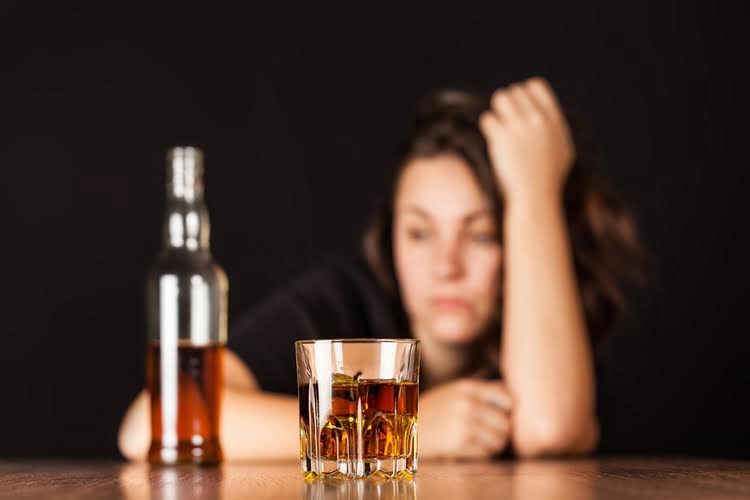Office of Addiction Services and Supports Office of Addiction Services and Supports
Content
There have been lawsuits filed, and won, regarding the requirement of attending how long is drug rehabics Anonymous and other twelve-step meetings as being inconsistent with the Establishment Clause of the First Amendment of the U.S. Although dangerous and addictive in its own right, nitrous oxide has been shown to be an effective treatment for a number of addictions. Treatment includes medication for depression or other disorders, counseling by experts and sharing of experience with other addicts.
Meetings typically involve individuals sharing their stories of addiction and recovery. Treatment programs are different for each individual and can be customized based on unique needs and situations. The most effective treatment programs ensure that individuals in recovery are actively engaged every step of the way. Group therapy offers the experience of closeness, sharing of painful experiences, communication of feelings, and helping others who are struggling with control over substance abuse.
What Happens After Drug or Alcohol Rehab?
Our inpatient drug rehab programs are also gender-informed, so you will be placed with peers based on how you identify. How can you tell if inpatient alcohol or drug treatment is the right option for yourself or someone you love? Here’s basic information about what’s involved in residential treatment and ongoing care to support long-term sobriety. The basic foundation of CBT is that thoughts and behaviors are learned and can also be unlearned. Within holistic therapy, the focus is on the individual’s overall well-being, which includes physical, emotional, and spiritual needs. Holistic therapy is a common mainstay in many treatment programs and has many benefits.
- Dual diagnosis treatment programs can address both issues to help a person through recovery, which may include the use of medication and therapy.
- There is a range of types of addiction treatment and substance use programs available.
- It is a very rigorous trial with oversight from ethicists and regulators and many other governing bodies.
- As no one person or drug addiction background is the same, we evaluate your many factors including your drug use pattern, mental state, physical state, and then create an individualized treatment plan specific to your needs.
- OASAS oversees the credentialing of substance use counselors and prevention practitioners in New York.
- Training sessions focus on how to express and react to specific feelings, how to handle criticism, or how to initiate social encounters (Institute of Medicine, 1990; American Psychiatric Association, 1995;Landry, 1996).
The assessment process requires gaining trust and breaking through that secretive nature. The individual needs to identify which substances were used and the extent of their substance use.
How do I know if I need inpatient rehab for substance abuse?
Ibogaine is a hallucinogenic drug promoted by certain fringe groups to interrupt both physical dependence and psychological craving to a broad range of drugs including narcotics, stimulants, alcohol, and nicotine. To date, there have never been any controlled studies showing it to be effective, and it is not accepted as a treatment by physicians, pharmacists, or addictionologist. There have also been several deaths related to ibogaine use, which causes tachycardia and long QT syndrome.
Treatment National Institute on Drug Abuse (NIDA) – National Institute on Drug Abuse
Treatment National Institute on Drug Abuse (NIDA).
Posted: Tue, 18 Jan 2022 08:00:00 GMT [source]
Reiterate the primary diagnosis and be ready to refer the patient for specialized treatment. If the patient objects to the initial referral, the physician should look for acceptable and appropriate alternatives. Under these rights, a patient is also protected from cruel treatment such as unnecessary restraint or seclusion. Many of the same techniques used in individual therapy are used in group therapy, such as psychoeducation, motivational interviewing, and skill development. Motivational interviewing can help you can solidify your goals to live substance-free and renew your motivation to do so successfully.
Twin Falls Outpatient Drug & Alcohol Treatment
Inpatient rehab also allows individuals to access drug rehab services, including recreational therapy and recovery-focused social activities. More than half of people with substance addictions have an underlying mental health disorder.Substance use and mental health disordersare closely tied together, and each can cause and perpetuate the other. As such, it is crucial to identify any co-occurring mental health disorders and treat these at the same time as the addiction.

Programs vary, but most centers offer inpatient rehab that includes exhaustive counseling. Inpatient residential treatment is recommended for those with moderate to severe addiction problems. Living in a safe rehab community can help you form new relationships. It removes many aspects of your life that trigger you to drink or do drugs. With outpatient treatment, there is a higher possibility of relapse for those with moderate to severe addictions. Outpatient rehabs are part-time programs that allow the patient to continue living at their home. Each inpatient drug rehab center provides its own unique accommodations.
After they’ve acknowledged they’re in need of help, the next step is finding a treatment program that can help restore their overall health, well-being, and happiness. If you don’t receive simultaneous treatment, the untreated disorder may cause the treated one to relapse. For example, if a person struggled with depression and addiction and only got treatment for the addiction, their depression symptoms would come back at full force. Without coping mechanisms to manage those symptoms, they would go back to the alcohol.
- Therapies used in substance use disorder and addiction treatments are based on an individual’s health and emotional needs.
- Intensive outpatient treatment requires a minimum of 9 hours of weekly attendance, usually in increments of 3 to 8 hours a day for 5 to 7 days a week.
- Known as Client-Directed Outcome-Informed therapy , this approach has been utilized by several drug treatment programs, such as Arizona’s Department of Health Services.
- We are required by law to maintain the privacy of your ‘’Protected Health Information” and to provide notice of our privacy practices for your review.


